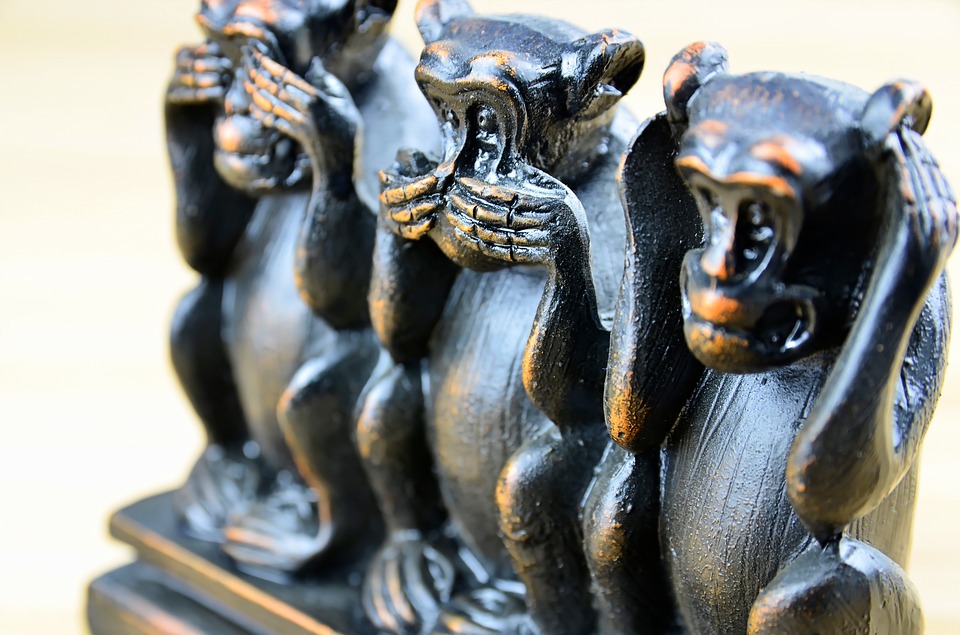
06 Apr, 2018 When we deny the spiritual
Recently I’ve had the privilege of conversing with a few atheists again. I always enjoy the experience -and not least because through it my comprehension of the wonder of the Christian worldview continues to grow. You see – while it’s not something most of us would think to talk of very often, the implications of denying God are rather all-encompassing. Here’s a reflection on one rather large problem that results from this denial.
Human consciousness is a miracle. Somehow the ‘real you’ is inside your body. You are self-aware. The question is what that self-awareness actually is. If we deny God then it is very simply an illusion, that came into existence amongst the chemicals of our brain for no reason, by accident.
Interestingly, among many Eastern religions the idea that consciousness is an illusion is also very similar – except that your existence as a spiritual being is affirmed. For example, the goal in some Eastern religions is to escape consciousness and the wheel of suffering (reincarnations) we are stuck on. The goal is to reach ‘Nirvana’ through good works – at which point we again become one with the universe, having surrendered our individuality / consciousness.
The implications are significant. Firstly, our rationality sits within this so-called illusion – giving us no basis for trusting it. Our free-will also sits within this illusion of consciousness and rationality. This is significant because free-will is the thing with which we make moral choices, choose to love another person, and discern things like beauty. The implication is that we do not really make moral choices – and are therefore not morally culpable for so-called ‘bad’ or ‘evil’ choices. We also do not really love others in the way we think we do. Instead – if we illustrate with the atheistic viewpoint, these things are nothing more than a chemical reaction in our brains. This is natures way of tricking us to behave in certain ways. Our personhood, and the choices to love that we think we are making – are actually just a programmed reaction and feeling.
Some atheistic philosophers call this determinism. The thinking goes like this: Because you don’t actually have free-will, your every decision is actually determined by your genes and /or your previous experiences.
If you ever did “Behavioural Psychology and Learning – Class 101” somewhere, this is about projecting the ideas of behavioural scientists like Pavlov (who did experiments with dogs), Skinner (who did experiments with rats) and Freud (who attributed our motivations to various sexual impulses) upon humans as the full explanation. Your every ‘choice’ is actually just an animal instinct or reaction, pre-determined by your genes and your previous experiences. You make no actual choices.
The problem here is that this clashes with reality – because your experience seems to tell you that you can be rational, can make moral choices , can love, and can discern something like beauty for yourself. And so the question is, is this explanation of reality true – or is it actually disconnected from reality?
I would suggest that if an explanation of reality actually denies the existence of the reality it seeks to explain, that it might not be the best explanation of that reality!
In any case, how can a rational argument that denies the existence of our rationality be true? Such a view makes no sense – which is why a denial of the spiritual, and of ‘God’, is rather a big thing.
For those accepting the existence of a spiritual realm, the real you is explained with words like ‘spirit’ or ‘soul’. And for those who accept the existence of a God who created us – your consciousness (self-awareness) is not just an illusion that somehow came from the universal spirit or force – and will return to it one day. Instead it is real, because God has genuinely given you life!
You are real.
You do exist – and your body does not define you.
You are ‘spirit, soul and body’. And you can exist separate to, and beyond, the tenure of your physical body.
..which all goes to make spiritual reflection rather important, because there is more to who we are, and to where we might go beyond this life, than what can be measured in flesh and blood!
It’s worth a thought.




